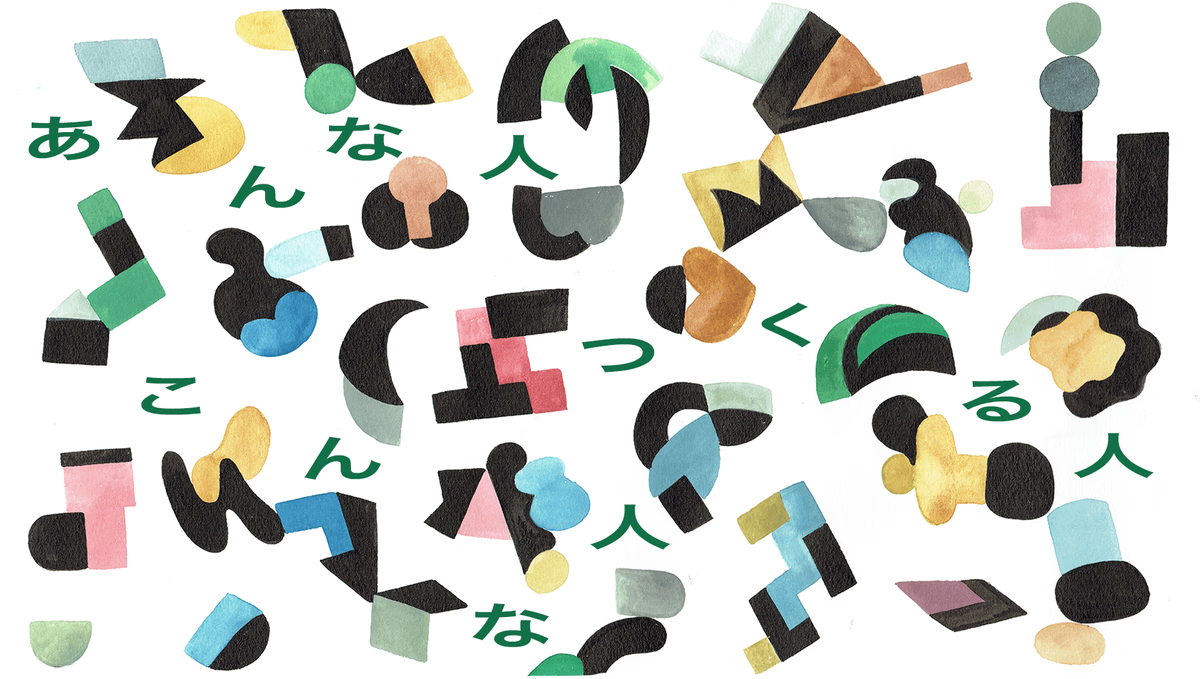CTO(最高技術責任者)といえば、知識とスキルを競い合うオオカミのような技術者集団の長、というイメージがあります。オオカミたる技術者たちに尊敬される、力と人柄がないとチームの教育やディレクションができないからです。数年間、IT業界で暮らしていたときに出会ったCTOの方たちはそんな存在でした。
モノサスのCTO(最高技術責任者)の木下洋一さんは、1979年生まれの42歳、サッカー日本代表の「ゴールデンエイジ」と同世代(本人談)。やわらかい物腰と静かな声からは想像つきませんが、「やっぱりこの人もいざとなれば牙とか爪とか!」とあらぬ想像をしながら、はじめましてのご挨拶をしました(すみません)。
インタビューでは、木下さんの波乱万丈な過去、モノサスの技術者たちの特徴やこれからみんなと一緒にやってみたいお仕事などについてじっくり語っていただきました。
会社の残金500円?波乱万丈な技術者人生の幕開け
杉本 モノサスに関わりはじめる前は、どんなことをしていたんですか?
木下 20代前半は、長野県で俗にいうSIerの技術者として生産管理や物流管理などの業務システムをつくっていました。26歳で東京に出て、大学や研究機関を支援する会社に転職したら、獰猛な天才たちがウヨウヨいて。高く伸びていた鼻が根元からポキン!と折れたんですよ。「自分は技術者としては大成しない」と判断して、その天才たちを支援・取りまとめるマネージャーをやることにしました。
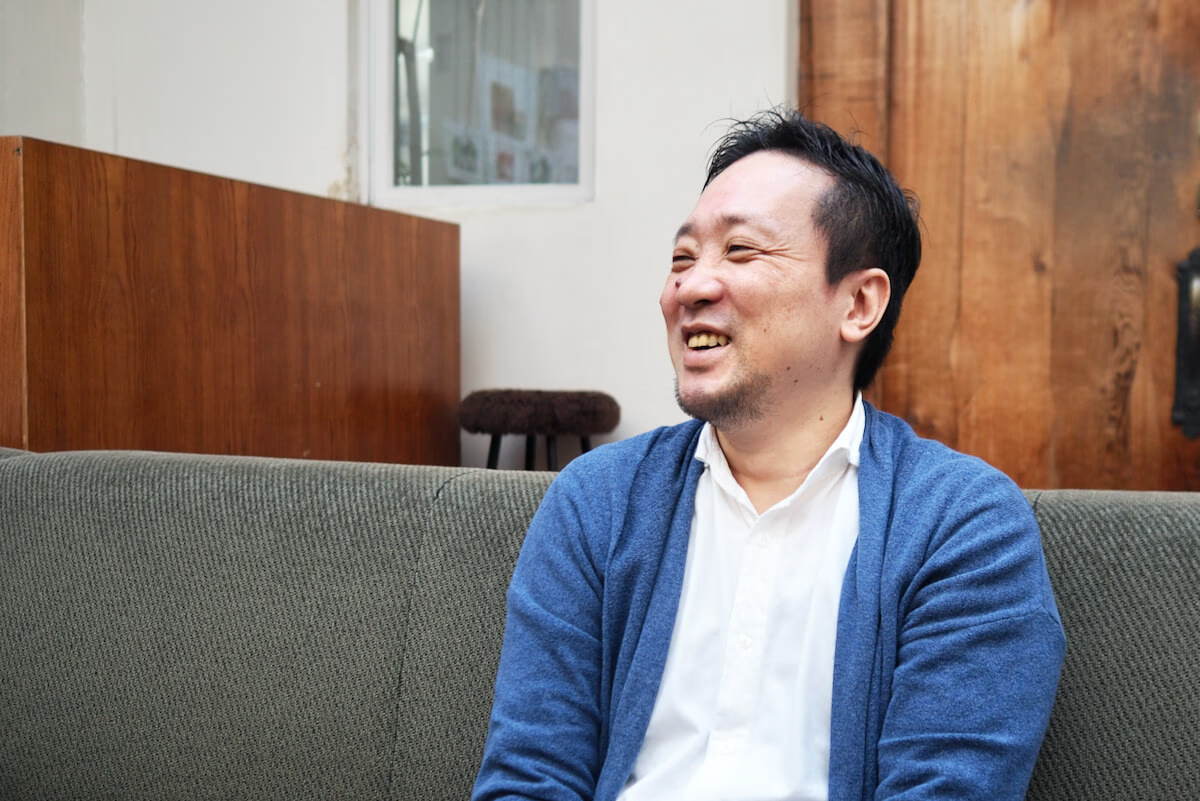
杉本 若くして猛獣使いのような立場に。
木下 はい、毎日ひっかき傷だらけでした。ところが29歳のときにリーマン・ショックが起き、その会社がぐーっと規模を縮小したので、そのタイミングで僕も退職しました。ちょうど、一週間後が結婚式で、妻の友だちに「お仕事はどんなことを?」と聞かれると、「IT系ですが、来週から無職です」って答えていました。
杉本 静かにお話されていますけど、20代の人生はかなり波があったのですね。
木下 ええ、まあ。その会社の元同僚と起業して、30歳でようやく本格的にWeb系の仕事をはじめました。そこそこ順調で、新オフィスへの引越し直前に東日本大震災が起きて。搬入予定だった機材の倉庫は東北にあったので津波で全部流され、しばらくはだだっ広いオフィスで段ボールにPCを載せ、正座して仕事をしていました。その後はみごとに仕事がなくなり、会社の残金が500円しかない状況になって。
杉本 えっと。500万円ではなく、500円ですか?
木下 500円です!そこから業績を回復していき、2013年に技術者として関わっていたプロジェクトでモノサスの山内真さんや真鍋さんと出会いました。そこにあるとき林さん(社長)がふらっと来て、プロジェクトを仕切っていたクライアントに対して「任せるときは命がけで任せないとダメですよ」って話をしていて。その強烈なインプットとともに、ようやくモノサスという会社を知ることになったんです。
CTOはディレクターの用心棒であり、技術チームの教育係
杉本 最初は個人としてメンバーと知り合って、林さんの強烈な登場で「会社としてのモノサス」を認識されたんですね。当時はモノサスにどんな印象をもっていましたか?
木下 初めて代々木のモノサスに来たとき、蔦の葉の緑がきれいで。「めっちゃいいオフィスだなー、おっしゃれだなー」「すげー意識たかいなー!」って。ちょっとずつ「モノサスっていいな」と思いはじめたんですね。2017年にイノベーション東北の打ち上げをしたときに、当時コーディング・ファクトリー(CF)にいた竹田さんと話していたら、家が近くて同い年で酒飲みだったので仲良くなったんです。
最初は竹田さんにCFのディレクションを依頼され、毎週金曜にオフィスにいて「技術相談」をしてほしいと言われ、紆余曲折を経て3年前からCTOという立場になりました。
杉本 外から見ていたモノサスと、中に入って見えてきたモノサスに違いはありましたか?
木下 モノサスのさわやかさ、あたたかさと言うのかな。人間味あるところは同じだなと思います。林さんがよく「一緒に生きていきたい人と仕事をしたい」と言うのですが、最近それがよくわかるようになりました。
杉本 CTOとしての木下さんは、どんな役割をもっているのでしょう。
木下 ディレクターからすると用心棒ですね。今のお客さんは技術についてもよくご存知なので、こちらが答えられないと「この会社大丈夫?」ってなっちゃう。だから僕が隣にいて、必ず打ち返すようにしています。技術チームのなかでは、メンバーに技術そのもの、技術の使い方や考え方を教える役割ですね。
杉本 モノサスでは、技術系のいろんな勉強会を開いているそうですね。木下さんはどんな勉強会をしているんですか。
木下 僕の勉強会は3回構成で、1回目は講義、2、3回目はディスカッション。できるだけ、自分で考えて言語化することをやってもらっています。プログラムそのものを教えることもありますが、多くの人に対しては技術に対する考え方や論理的な思考のしかたを教えています。
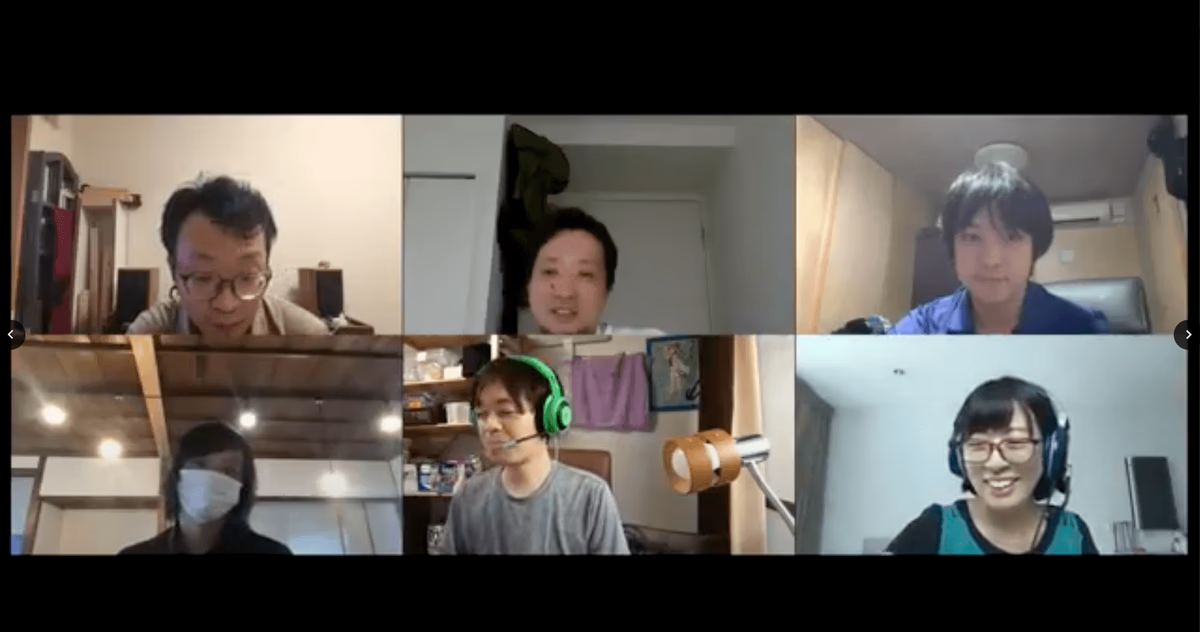
開催しはじめた頃の勉強会
木下 今は、「世界のなかで、システムやWebは何のためにあるのか?」を考えてもらおうとしています。個人的には、データを見せるためにあると考えていて。データを音や写真にして、WebというUI(User Interface)によって人間に情報として放り込む。モノサスにはフロントエンジニアの達人が多いので、データやデータベースについて造詣を深めてもらえば「システムやWebには何が必要か」が段階的にわかってくるんですよね。
「なぜ、この技術はこの世に存在しているのか?」を考えてほしい
杉本 木下さんは、新しい知識や技術を追いかけるだけでなく、「何のために技術を学び、使っているのか」を考えてほしいと思っているのかなと思います。
木下 そうですね。技術に関する情報や知識は、ふだんの会話のなかでも意識的に伝えるようにしています。なにげなく一緒にいる時間のなかで、専門性があること、論理的に考えられた何かに触れてもらえたらいいなと思っていて。技術者って知らない言葉をお客さんに言われると、ドキッとして思考が止まっちゃうんです。でも、「あのとき、木下ってやつがなんか言ってたな」という状態があれば考えはじめられる。この差はけっこう大きいはずです。
僕は、みんなよりも最先端の技術を知っているケースが多いのですが、その習得に10倍の時間を使っているかというとそうではなくて。ふだんから「なぜ、この技術がこの世に存在しているのか」を考えていて、新しい技術の理解に既存の知識を流用しているからです。
杉本 新しい技術をつくった人の視点から理解しようとするイメージでしょうか。
木下 すでに似たような言語があるのに、なぜわざわざつくったんだろう?というストーリーを見ていますね。また、僕はプログラムを国語的に捉えて伝えようとするところがあります。技術者はつい「SQLのクエリーが」と横文字を並べるけれど、「それを日本語で言うと?」って聞き返すんです。SQLを日本語でいうと「構造型問い合わせ言語」、クエリーは英語の「query」で「問い合わせ」です。国語的に解きほぐしてプログラムを捉えてもいいと思うんですよね。
新入社員の方や、この記事を見てモノサスに入りたいと思っている人がいたら、そういうディスカッションにはいくらでも時間をとります。これをやると、絶対賢くなれます。
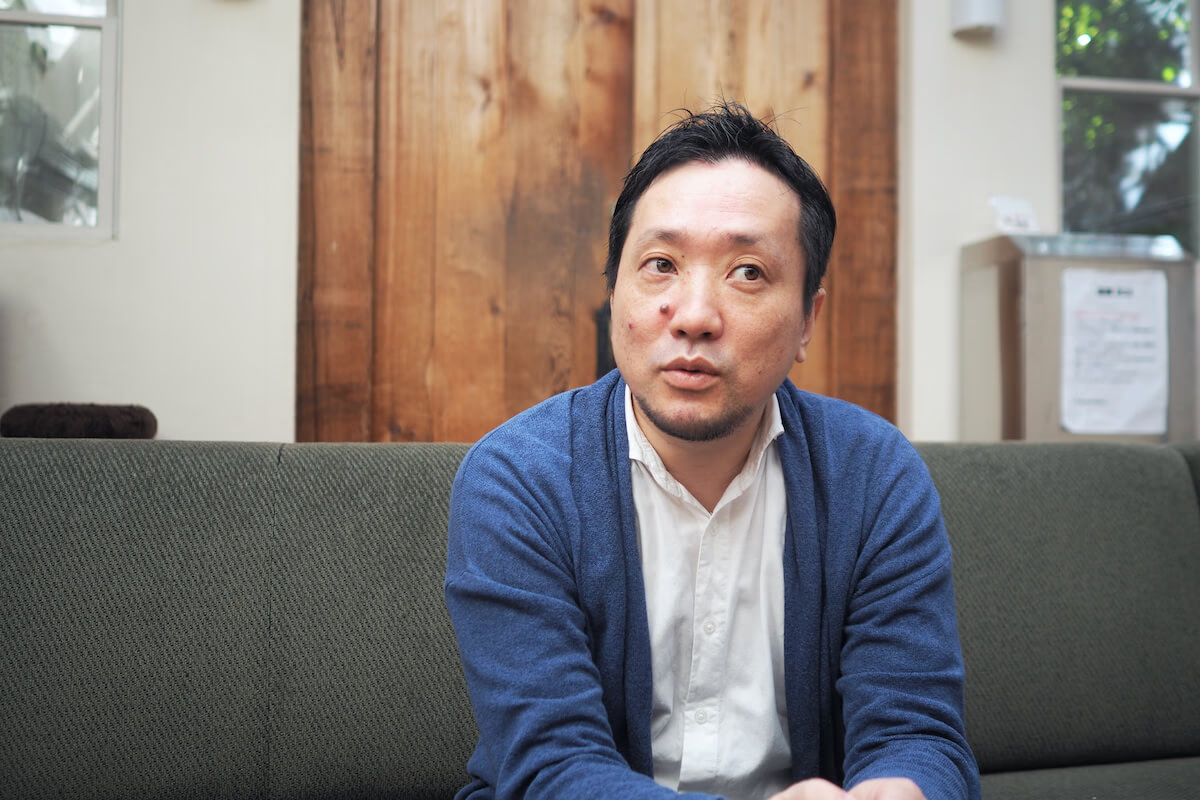
杉本 木下さんが「技術をどう伝えるか?」を一所懸命に考える理由が気になります。
木下 技術者を見ていて、シンプルにもったいないなと思うことが多かったからです。なんでこんなにすごい発想やアイデア、夢や希望をもっているのに伝えないんだろう? 隣にいる人と混ぜ合わないんだろう?という思いが先行しているかもしれません。
僕は、使える技術を増やしていく、例えるとスマホにアプリを追加していくようような成長を「水平型の成長」、技術や専門性の先にある結果を求めた人間的な「垂直型の成長」があると捉えています。どちらも重要なのですが、どうしても水平型の成長を目指す人が多い。また第三の軸として、この業界では、複数の要素を混ぜてひとつの要素につくりあげる能力が非常に大事なのですが、これをできる人が少ない印象があります。そこに対してもっと目を向ける技術者が増えてほしいんです。
モノサスの技術者は「いつも何かに可能性を感じている人たち」
杉本 モノサスの技術者にはどんな特徴があると思いますか。
木下 一般的に技術者はけっこう断定的な話し方をする人が多いけれど、モノサスの技術者はあまり否定しないですよね。たとえば、真鍋さんが「会社の一角をパン屋にしたい」と言い出したら、「でも、そこに何か可能性があるかもしれない」って話をみんながする。IT系の企業でそんなこと言ったら、全員いなくなる会社があっても不思議じゃないと思うんですけど。常に何かに可能性を感じているというのは、技術者として面白い特性だと思うので、これを技術に転化していけたらいいなと思っています。
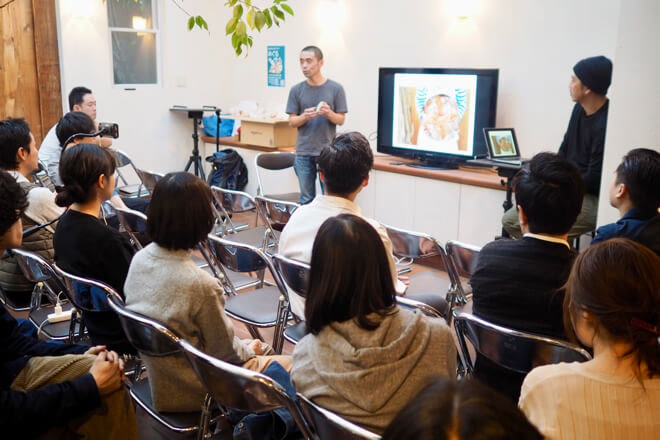
当時開催された、パン屋の説明会。たくさんのメンバーが集まりました
利己的な部分があまり出なくて、あくまでお客さんのためにがっつりやるのも特徴かな。あと、流れを常に探している感じがします。新しく何かを始める人がいたら、そこについていく人がいて、また素直にその人に憧れる人が何人か出てくるというかたちで流れがつながっていきます。一応、マイナス面も言うと、愚直で楽をしようとしない。また、新しいものにあまり手を出したがらない傾向があるので、案件のなかで必ずひとつ新しい要素を入れるように伝えています。
杉本 愚直さ、楽をしようとしないことは、どうしてマイナスなんですか。
木下 たとえば、スケジュールが埋まっているときに、新しく面白い仕事のお問い合わせがあったとします。そういうとき、愚直に「手を早く動かそう」とするよりも、技術的に自動化する仕組みを入れたりして、手を空ける努力を考えるといいと思うんです。
僕は楽をすること、効率化して時短することに命がけになっていいと思います。僕は、毎月やってくる仕事で1時間分楽をするために3時間を費やします。すると、3ヶ月でペイしますよね。効率化ってそういう算数だし、自分の成長への投資だと思います。
モノサスのホスピタリティの高さを生かした仕事をしたい
杉本 CTOとして、モノサスの技術系メンバーにはどんな仕事が向いていると思いますか?
木下 モノサスは技術者に限らず、ホスピタリティの高さが本当にすごい。これは文化だと思うし、空気感がそれをつくっていると思うんですよ。バーンと短期的につくって納品する仕事より、息長く一緒につくっていくような仕事が向いているでしょうね。たとえば、企業のWebマスターの方々を技術面でフォローするチームは、すごくモノサスらしい仕事のひとつ。お客さんの業務を理解して、その5倍ぐらいの技術力で対等に立って長く関係が続くのは、モノサスとしてスペシャルな何かになるんじゃないかと思っています。
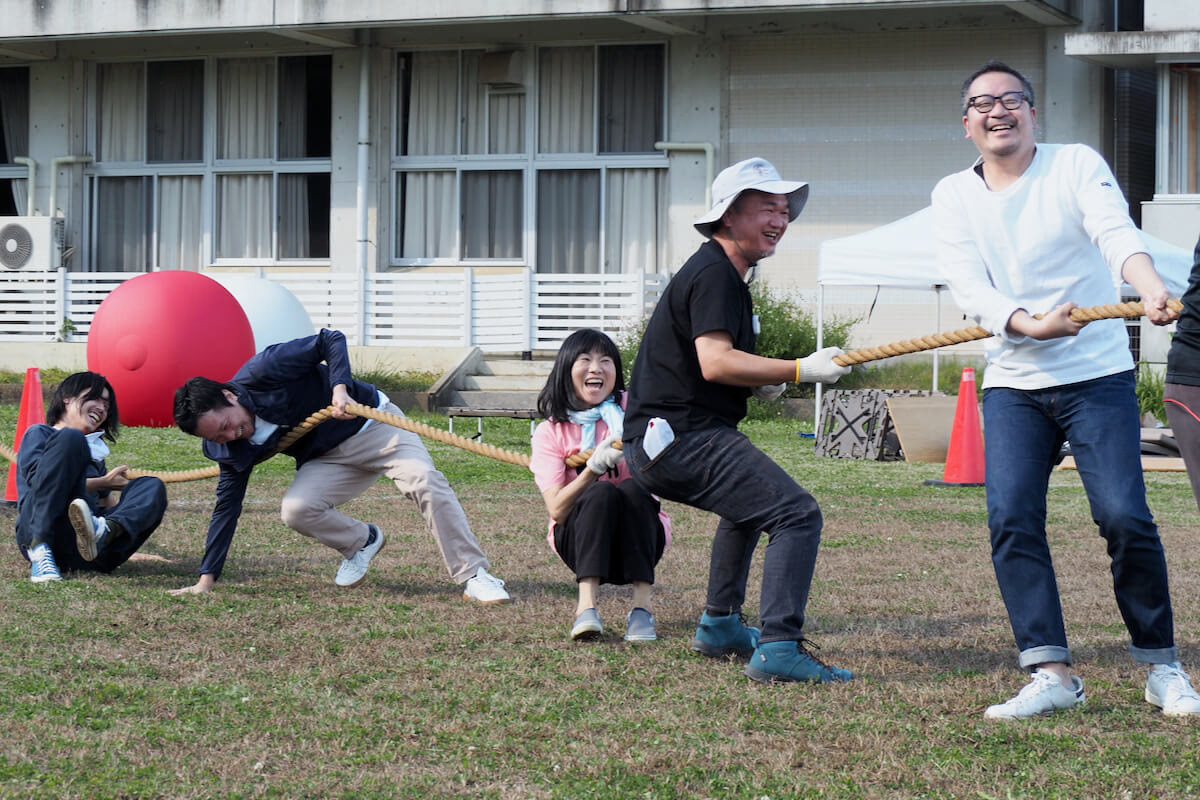
モノサスの行事にも積極的に参加している木下さん
木下 また、そのホスピタリティの高さゆえに、モノサスの技術者は「こんなことできるかな?」というやわらかい段階で投げられても親身になって考えようとします。依頼されたデザインや機能だけでなく、アクセシビリティなどの非機能案件の部分を、言われてなくても気にする人がいるんですね。これはすごくいいことだと思っていて。「本当にいいものってなんだろう?」という議論からできるお仕事がくると、モノサスのメンバーがより活きると思いますね。
あと、世の中にはお客さんの前に出さないほうがいい技術者を抱える会社さんが多いけど、モノサスは全然違う。人間性が豊かというか、人間味があるというか。もっとお客さんのところへ行って、そこの部分を評価してもらうといいと思っています。
杉本 木下さんはこれから、モノサスの技術系メンバーと一緒にどんな仕事をしてみたいですか?
木下 個人的な思い、なのですが。近年は、公開されているいろんな研究データをやさしく表現するアプリが増えています。こういうアプリを超優秀なエンジニアがつくると、青とかグレーの冷たい感じになりがちです。でも、モノサスの表現のうまさ、実装のうまさ、ホスピタリティの高さを活かせば、難しいデータをきれいにやさしく表現できると思うんですよ。モノサスの技術者は気が利く人も多いですし、やさしさに包まれたプロダクトをつくれたらいいなと思います。
杉本 やさしさに包まれたプロダクトっていいですね!
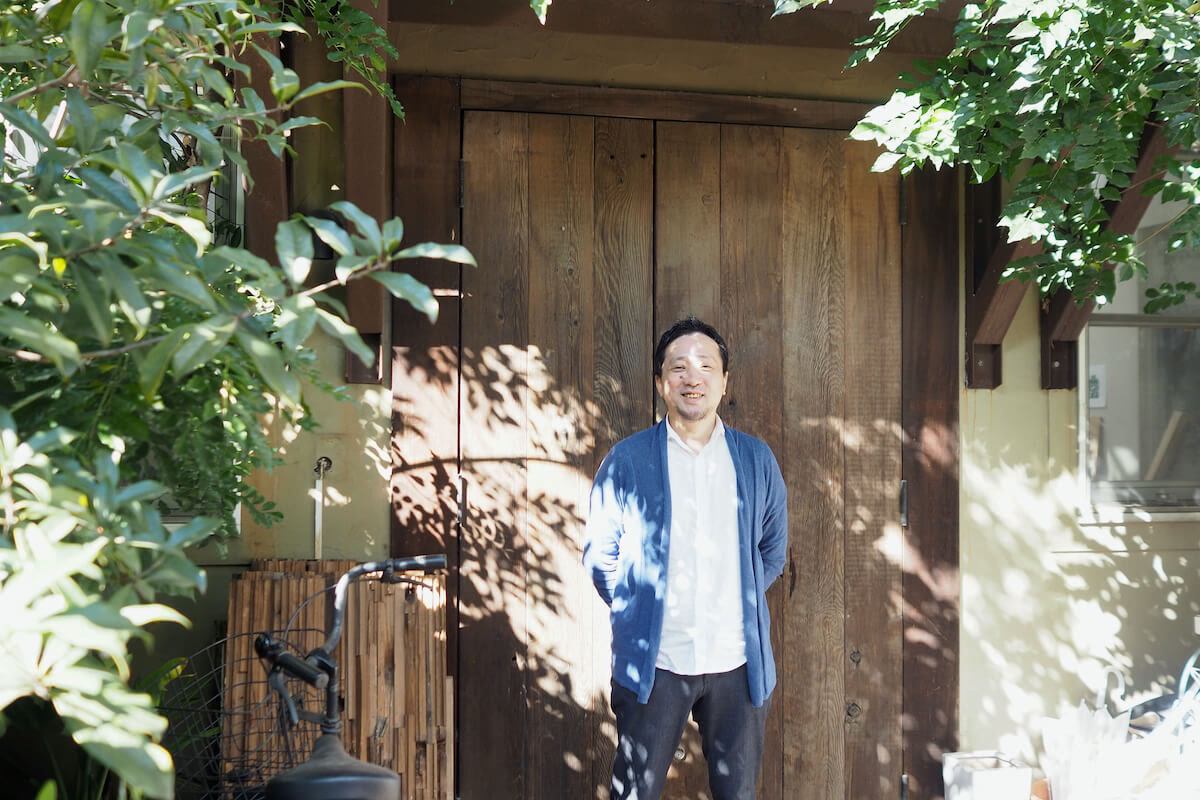
木下さんは、システムを設計するようにして、関わっている人たちの特性や会社の文化を俯瞰しながら、大きな意味での仕事を設計しているのかなと思います。そう伝えてみたら、木下さんは「僕、個人の名刺にはシステム・デザイナーって肩書きを書いているんですよ」と教えてくれました。なるほど!やっぱり!
技術って、使われ方によってどんな風にも生かされるものだと思います。常々、モノサスの人たちって、ごく普通に世の中のためになることを考えているなと思っていて。人の役に立つものをつくるのはすごく向いている感じがします。モノサスのみなさんが、技術力とメンバーの人間性を掛け合わせながら、どんなお仕事を世の中に生み出していくのか楽しみにしています。
